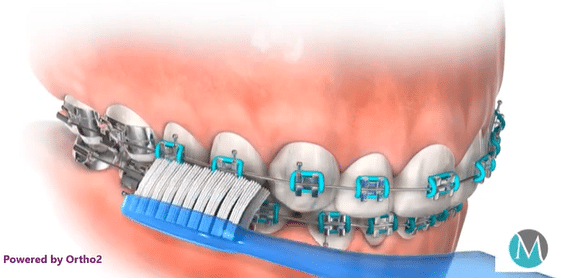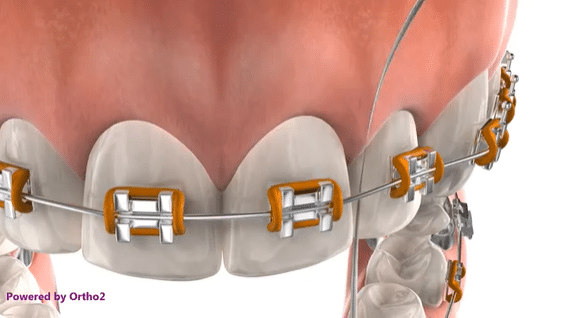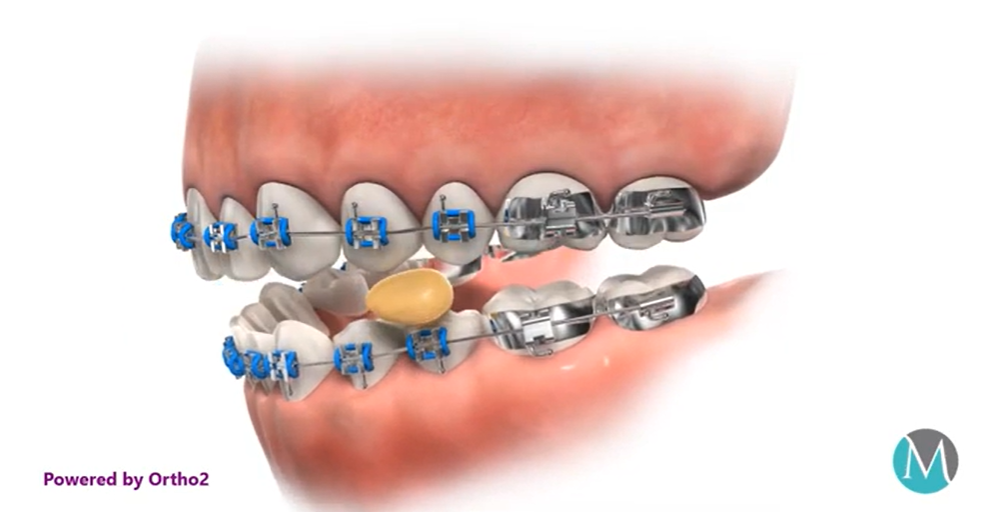When you have braces, it’s crucial to prioritize your oral health. Regular brushing and flossing are essential to ensure your teeth and gums remain healthy throughout your orthodontic treatment. Braces can make these tasks more challenging, but adjusting your habits is key to maintaining a beautiful smile. Neglecting oral hygiene may lead to more frequent dental visits for professional cleanings.
Brushing and Flossing with Braces
Maintaining good oral hygiene is crucial during orthodontic treatment with braces. Watch the following videos to learn how to care for your braces effectively:
Brushing with Braces

Flossing with Floss Threader

Eating with Braces
One of the most common questions from individuals with braces is, “What can I eat?” After getting your braces adjusted, it’s best to stick to soft foods for the first day or so. Throughout orthodontic treatment, avoid hard and crunchy foods, as well as sticky items like caramels and gum. We’ve listed some examples of foods to avoid below:
- Chewy foods: bagels, hard rolls, licorice
- Crunchy foods: popcorn, ice
- Sticky foods: caramels, gum
- Hard foods: nuts, candy
- Foods you have to bite into: corn on the cob, apples, carrots
Remember, chewing on hard objects like pens or pencils can also damage your braces, potentially extending your treatment time.
Foods to Avoid

General Soreness
When you first get braces, you may experience soreness in your mouth for 3-5 days, especially when biting or chewing. Over-the-counter pain relievers, like Tylenol, can help alleviate discomfort. Additionally, your lips, cheeks, and tongue may become irritated as they get used to rubbing against the braces. To address this, we provide orthodontic wax to reduce irritation in affected areas.
Loosening of Teeth
Don’t be alarmed if your teeth feel a bit loose during your orthodontic treatment; this is a normal part of the process. Teeth need to become loose to shift into their corrected positions and will firm up once treatment is completed.
Loose Wire or Band
If a wire or bracket comes loose and causes irritation, you can use a blunt instrument to carefully push it back under the archwire. If this doesn’t resolve the issue, place orthodontic wax on the wire to reduce discomfort. Reach out to our office for an appointment to address the problem promptly.
Rubber Band Wear
Cooperation with your orthodontist’s instructions is crucial for successful treatment. Wearing rubber bands or other prescribed appliances consistently is essential for teeth and jaws to move into their correct positions. Failure to follow instructions or damaged appliances can extend your treatment time.
Athletics
If you participate in sports, please inform us. We provide protective mouthguards for contact sports to safeguard your braces and oral health during athletic activities.







